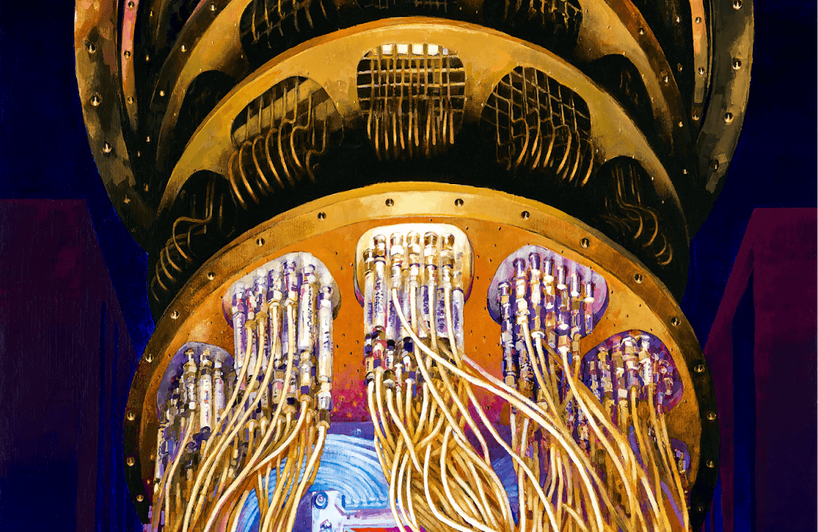The MST Reader is a series of guest posts offering overviews of interesting and timely topics that affect our world.
The Quantum Realm
Google recently asserted in a research paper that they had created a computer that had achieved quantum supremacy, solving a problem in 3 minutes and 20 seconds which would take a traditional computer 10,000 years. IBM disputed this, asserting that Google’s computer, “Sycamore,” was too specialized to be meaningfully useful, and also that traditional computers could actually solve the same problem in only a few days, given the right algorithm. [More at The New York Times, The Verge and Fortune.]
“Quantum supremacy” is a term coined to describe the ability of a quantum computer to make computations fast enough that they can effectively solve problems that would take classical computers so long as to be impractical. This is different than only demonstrating a “quantum advantage,” which would be to simply show that a quantum computer is faster than a traditional computer, but not spectacularly so.
Perspectives vary on the ultimate meaning and significance of Sycamore’s computational milestone, but the excitement about the possibilities of quantum computing is understandable. Being able to solve problems in minutes that would otherwise take thousands of years would be a leap forward so dramatic that it would be akin to the difference between a pre-computing world and the one we live in now. It might not even be possible for us to imagine all the ways that such a shift would change our lives, the systems that our lives are built on, and even our fundamental understanding of the world around us.
Artificial intelligence, machine learning, chemical simulations — even designing better quantum computers — are some possible applications. The speed of quantum computers would also break cryptography as we currently use it — classical systems will not be secure against quantum eyes.
While quantum theory has been around for more than 100 years, quantum computing is a brand-new field, only conceived of in the 1980s. Many believe that a practical quantum computer is still decades away. Current devices are massive, expensive experimental machines that cool to near absolute zero in order to manipulate the quantum states of atoms. Instead of bits like a classical computer, the unit of memory for a quantum computer is a qubit, which can exist in more than one state at a time — faster, but also weirder, than systems defined by classical physics. Special algorithms are required to translate calculations between classical and quantum systems. [More at MIT Technology Review and How Stuff Works.]
One of Google’s assertions is that the results from Sycamore prove, at least, that there is no fundamental physical law preventing the execution of effective quantum computation.
Sycamore is a 53-qubit system; however, many estimate that it will take thousands of qubits just to error-correct and manage a quantum system effectively.
But IBM, Google, Microsoft, Intel, Rigetti and IonQ are just a few of the companies developing quantum computers, to say nothing of government interests in this technology around the world. Given the pace of change over the past 50 years, it is easy to imagine that this challenge, too, may be in the rearview mirror before long.
…
Further viewing:
A fun video from Wired explaining elements of quantum computing at 5 different difficulty levels, from a child to a professional:
https://youtu.be/OWJCfOvochA
In A Nutshell: Quantum Computers Explained: https://youtu.be/JhHMJCUmq28
…
Join the conversation with Market Street Talent on LinkedIn, Instagram, Facebook and Twitter!
